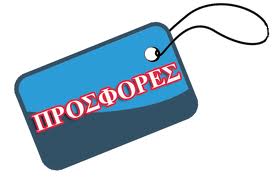 Tropical Fruit Pests and Pollinators: Biology, Economic Importance, Natural Enemies and Control
Tropical Fruit Pests and Pollinators: Biology, Economic Importance, Natural Enemies and Control
Περιγραφή
Reviews
Tropical Fruit Pests and Pollinators: Biology, Economic Importance, Natural Enemies and Control
Edited by J Pena, University of Florida, USA; J Sharp, formerly of USDA, Florida, USA; M Wysoki, Agricultural Research Organization, The Volcani Center, Bet Dagan, Israel
Pub Date: July 2002
Hardback
448 pages
Readership
Advanced students and researchers in the areas of horticulture, entomology and pest management.
Key Features
• Separate chapters on banana, papaya, pineapple, guava, avocado and other major fruits
• Coverage of quarantine treatments for pests of tropical fruits
• Authors include international authorities from around the world
Main Description
Insect and other pests cause major economic damage on fruit crops in the tropics. However, some insects are beneficial and have a role in pollinating flowers, thus enabling fruit set. This book reviews these injurious and beneficial organisims and how they might be controlled to enhance fruit production and quality.
Reviews
• "Twenty eight authors give an excellent account of the insect pests and pollinators of major and some less well-known tropical fruits".
Graham Mathews, Crop Protection 22, 2003
• "Knowledge of pests of native and introduced tropical fruits has become extremely important. This book is an excellent means of increasing this knowledge and an excellent reference for persons involved with tropical fruits in any way."
Carlos Balerdi, American Entomologist, Spring 2004
Main Contents
• Introduction, J E Peρa
• Pests of Banana, C S Gold, International Institute of Tropical Agriculture, Uganda, B Pinese, Queensland Department of Primary Industries, Australia and J E Peρa
• Tropical Citrus Pests, D Smith, Department of Primary Industries, Australia and J E Peρa
• Pests and Pollinators of Mango, G K Waite, Queensland Horticultural Institute, Australia
• Pests of Papaya, A Pantoja, University of Puerto Rico, Puerto Rico, P A Follett, USDA-ARS, Hawaii, USA and J A Villanueva-Jimιnez, Colegio de Postgraduados, Mexico
• Pests of Pineapple, G J Petty, Agricultural Research Council, South Africa, G R Stirling, Biological Crop Protection Pty Ltd, Australia and D P Bartholomew, University of Hawaii, USA
• Pollinators and Pests of Annona Species, J E Peρa, H Nadel, ICIPE, Kenya, M Barbosa-Pereira, Department of Entomologia, ESALQ-USP Brazil and D Smith, Department of Primary Industries, Australia
• Pests and Pollinators of Avocado, M Wysoki, M A van den Berg, Institute for Tropical and Subtropical Crops, South Africa, G Ish-Am, Hebrew University of Jerusalem, Israel, S Gazit, J E Peρa and G Waite, Queensland Horticultural Institute, Australia
• Pests of Guava, W P Gould, USDA, ARS, Florida, USA and A Raga, Instituto Biologico, Brazil
• Minor Tropical Fruit Pests, P A C Ooi, FAO Regional Office, Thailand, A Winotai, Biological Control Group, Thailand and J E Peρa
• Pests of Litchi and Longan, G K Waite, Queensland Horticultural Institute, Australia and J S Hwang, Taiwan Agricultural Chemicals and Toxic Substances Research Institute, Taiwan
• Passion Fruit, E L Aguiar-Menezes, Empresa Brasileira de Pesquisa Agropecuaria, Brazil, E B Menezes, P C R Cassino and M A Soares, Universidade Federal Rural do Rio de Janeiro, Brazil
• Quarantine Treatments for Pests of Tropical Fruits, J L Sharp, USDA, USA and N W Heather, University of Queensland, Australia
Edited by J Pena, University of Florida, USA; J Sharp, formerly of USDA, Florida, USA; M Wysoki, Agricultural Research Organization, The Volcani Center, Bet Dagan, Israel
Pub Date: July 2002
Hardback
448 pages
Readership
Advanced students and researchers in the areas of horticulture, entomology and pest management.
Key Features
• Separate chapters on banana, papaya, pineapple, guava, avocado and other major fruits
• Coverage of quarantine treatments for pests of tropical fruits
• Authors include international authorities from around the world
Main Description
Insect and other pests cause major economic damage on fruit crops in the tropics. However, some insects are beneficial and have a role in pollinating flowers, thus enabling fruit set. This book reviews these injurious and beneficial organisims and how they might be controlled to enhance fruit production and quality.
Reviews
• "Twenty eight authors give an excellent account of the insect pests and pollinators of major and some less well-known tropical fruits".
Graham Mathews, Crop Protection 22, 2003
• "Knowledge of pests of native and introduced tropical fruits has become extremely important. This book is an excellent means of increasing this knowledge and an excellent reference for persons involved with tropical fruits in any way."
Carlos Balerdi, American Entomologist, Spring 2004
Main Contents
• Introduction, J E Peρa
• Pests of Banana, C S Gold, International Institute of Tropical Agriculture, Uganda, B Pinese, Queensland Department of Primary Industries, Australia and J E Peρa
• Tropical Citrus Pests, D Smith, Department of Primary Industries, Australia and J E Peρa
• Pests and Pollinators of Mango, G K Waite, Queensland Horticultural Institute, Australia
• Pests of Papaya, A Pantoja, University of Puerto Rico, Puerto Rico, P A Follett, USDA-ARS, Hawaii, USA and J A Villanueva-Jimιnez, Colegio de Postgraduados, Mexico
• Pests of Pineapple, G J Petty, Agricultural Research Council, South Africa, G R Stirling, Biological Crop Protection Pty Ltd, Australia and D P Bartholomew, University of Hawaii, USA
• Pollinators and Pests of Annona Species, J E Peρa, H Nadel, ICIPE, Kenya, M Barbosa-Pereira, Department of Entomologia, ESALQ-USP Brazil and D Smith, Department of Primary Industries, Australia
• Pests and Pollinators of Avocado, M Wysoki, M A van den Berg, Institute for Tropical and Subtropical Crops, South Africa, G Ish-Am, Hebrew University of Jerusalem, Israel, S Gazit, J E Peρa and G Waite, Queensland Horticultural Institute, Australia
• Pests of Guava, W P Gould, USDA, ARS, Florida, USA and A Raga, Instituto Biologico, Brazil
• Minor Tropical Fruit Pests, P A C Ooi, FAO Regional Office, Thailand, A Winotai, Biological Control Group, Thailand and J E Peρa
• Pests of Litchi and Longan, G K Waite, Queensland Horticultural Institute, Australia and J S Hwang, Taiwan Agricultural Chemicals and Toxic Substances Research Institute, Taiwan
• Passion Fruit, E L Aguiar-Menezes, Empresa Brasileira de Pesquisa Agropecuaria, Brazil, E B Menezes, P C R Cassino and M A Soares, Universidade Federal Rural do Rio de Janeiro, Brazil
• Quarantine Treatments for Pests of Tropical Fruits, J L Sharp, USDA, USA and N W Heather, University of Queensland, Australia






